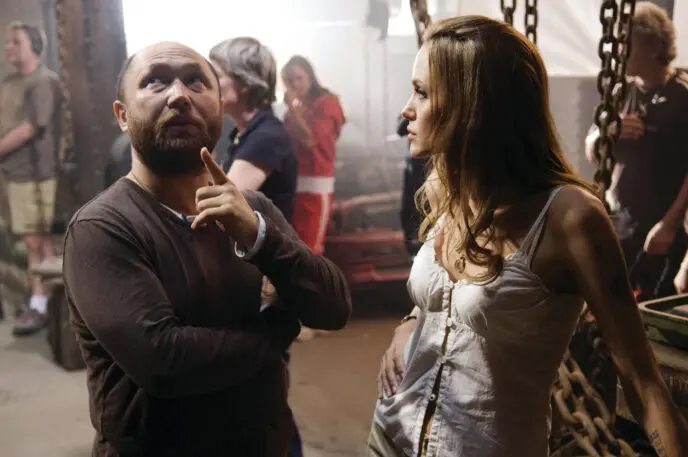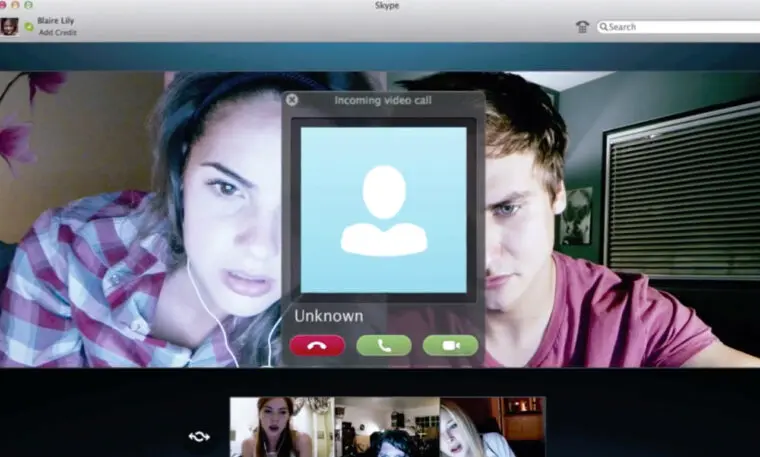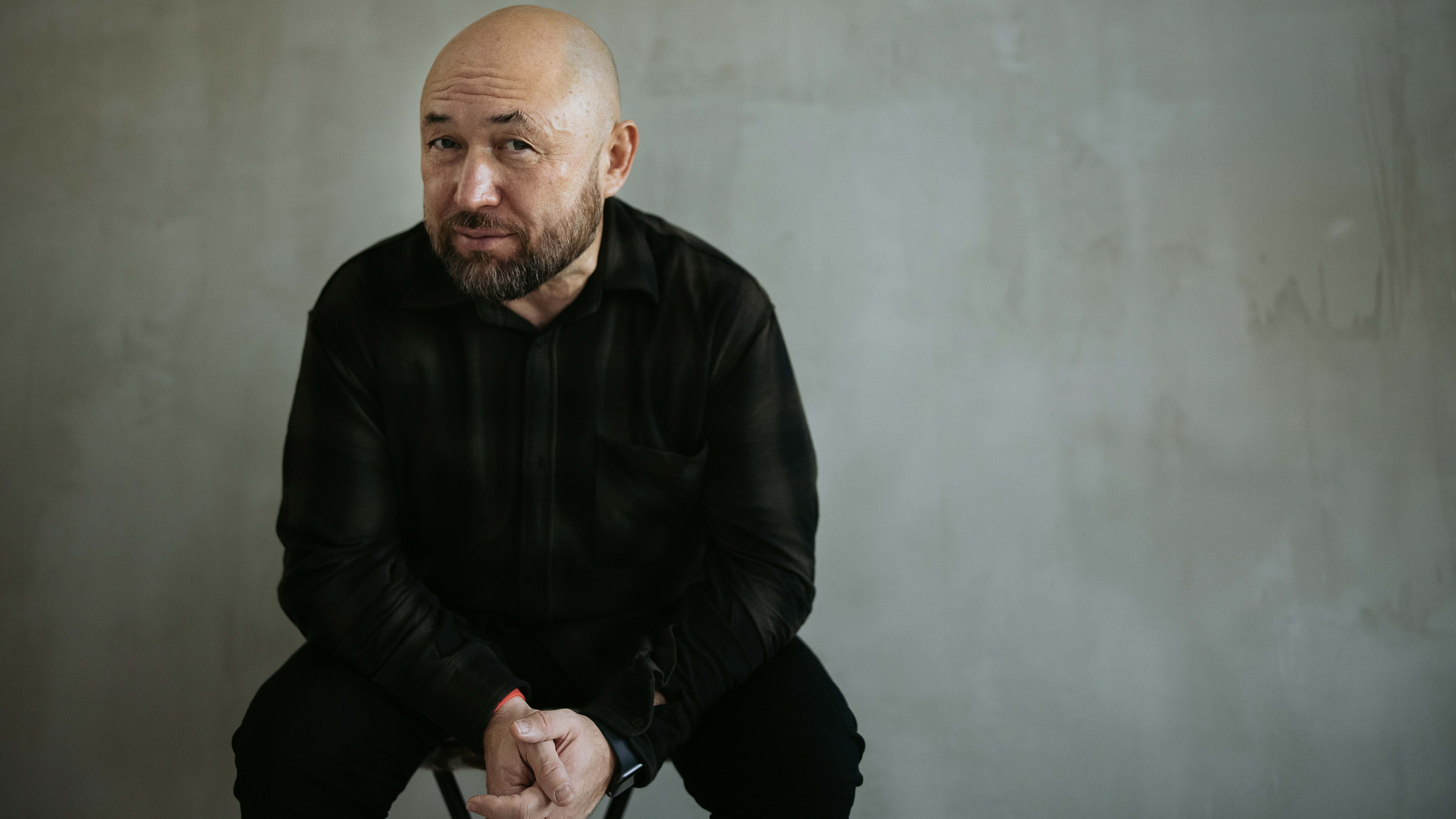When Kazakh-Russian director Timur Bekmambetov was producing the 2014 horror film Unfriended, a movie told entirely on Skype screens in which a group of high school kids are haunted by a friend who’d been bullied and—they thought—committed suicide, he was constantly asked the same question: Why didn’t any of the characters, who, one by one, are freakishly tortured by the former friend, shut down their computers and go into each other’s homes?
Back then, of course, the question was a natural one. Now, Bekmambetov says, “No one asks that.”
Thanks to COVID-19, leaving your house and going to visit someone else, even to save their life, is a potentially fatal risk. Indeed, today no one would ever wonder why characters in a film never physically interact with one another. After all, that’s essentially what life has looked like for almost a year now.
But while the pandemic has been devastating to Hollywood—shutting down productions and causing major studios to shift many of their tentpole releases to digital distribution or punt them into the future—it has been a boon for Bekmambetov and his production company, Bazelevs Studio. The company, whose primary hubs are in Moscow and Los Angeles, pioneered and specializes in so-called Screenlife films that take place exclusively on computer and mobile screens and are shot using GoPros and other nontraditional cameras, often with actors and filmmakers in separate locations.
In addition to Unfriended, which grossed $65 million on a shoestring budget of $1 million, other Screenlife films include the John Cho thriller Searching; Unfriended: Dark Web; and Profile, a film about a U.K. journalist whose research into ISIS recruitment takes a terrifying turn. Profile won the audience award at the Berlinale film festival in 2018, and it will be released theatrically later this year.

This new reality has led to an uptick in Bazelevs’s production schedule over the past several months. The company has produced five films during the pandemic, and it secured a slate deal with Universal, which was brokered last summer. In January, R#J, a modern retelling of Romeo and Juliet told on mobile phones, premiered at Sundance. And a sci-fi film starring Ice Cube and Eva Longoria is in postproduction at Universal.
Bekmambetov is also playing with new formats as he pushes the company’s proprietary Screenlife technology in new directions. The film he’s currently directing, V2: Escape From Hell, a World War II fighter pilot thriller, is being shot in both horizontal and vertical formats for IMAX theaters and mobile phones respectively. The film is the company’s second experiment with vertical filmmaking—the first was the Snapchat Original series Dead of Night, which is gearing up for its third season.
Bekmambetov says that his films are no longer derided by studio executives as being “gimmicky,” as they once were. Now the Screenlife format has become the Holy Grail in Hollywood, and not just because of its practical implications during a global pandemic.
“Half of our life, and some of the most important events in our life, take place not in physical space, but in apps, in the digital space,” he says. “So if we spend so much time in the digital space, why wouldn’t I make movies about it? It’s very important. This (reality) was less visible a year ago. But today, after all the craziness of COVID, it is our real life. It is where we are now. We need to learn how [to translate it to film].”
Exploring digital details
The magic of Screenlife films goes beyond the cool concept of a movie “told on screens.” Bekmambetov and the directors he hires think hard about the nuances involved in how people behave on screens and what it says about us. Much can be conveyed, for instance, in the way a word is typed, retyped, or hovered over on a Google search bar. Or in the way a character feverishly toggles between screens. There is immense psychology at work, and Bekmambetov knows it.
In Profile, which he directed, as the main character becomes increasingly afraid that she is being lured into an ISIS trap, her screen activity—which is the viewer’s screen activity—becomes increasingly frantic. She sends chats in all caps that are misspelled. She quickly dismisses a FaceTime call from a friend. She frantically searches the web. It may not be acting, but it delivers the same character insight and is ultimately just as important as an actor’s performance to a Screenlife film.
Bekmambetov first started thinking about this a decade ago when he was Skyping with his Russian producing partner. They were talking about a film’s marketing campaign, and as they wrapped up one discussion and moved on to another, she began a chat with her boyfriend—unaware that she was still sharing a screen with Bekmambetov. “I see her chatting with her boyfriend and stuff and I was shocked,” he says. “A minute later, I said, ‘Olga, sorry, but I can see your screen, you forgot to . . .'”
She apologized and everyone laughed about it. “But then when we finished our conversation, I suddenly understood. ‘Oh my God. I was literally inside her mind. She thought nobody was looking over her shoulder, but I saw her typing, chatting, searching, whatever.”
In a film, “it’s literally more intimate than a voice-over,” Bekmambetov goes on. “Voice-over is a direct channel with the character. But Screenlife is a language. It’s a possibility to sneak inside the character and be with the character all the time. You can see when people are lying or losing control or are nervous. You see immediately because it’s not about content only. It’s about choreography. How your mouth moves, how you’re retyping, how you’re deleting stuff. You immediately understand what your character feels.”
The Unfriended experiment
Not long after this revelation, Bekmambetov told his then-assistant, Nelson Greaves, to write a script for a movie set entirely on computer screens. The result was Unfriended. Bekmambetov tried to shop it around Hollywood but was told no one would be interested. Who would want to go to a movie theater to look at a computer screen? He made the movie anyway and ultimately got a distribution deal with Universal.

When Unfriended was a box office hit—he says horror producer Jason Blum consulted on the rollout—Bekmambetov gained confidence in the format and decided to divert $8 million that had been invested in a “horror movie about squirrels” into eight Screenlife films. The result included projects like Searching, which came out in 2018 and which he says helped commercialize the genre thanks to A-list casting (John Cho and Debra Messing), and Profile. With each film, there were more innovations. Profile, for instance, was shot simultaneously with actors in two different locations: London and Cypress.
Even when Searching made $75 million worldwide, though, Bekmambetov says that Hollywood remained skeptical about going all in on the concept. Then the pandemic hit. Three months after lockdowns started in the United States, Universal signed a five-picture deal for Screenlife films.
COVID-19 innovations
The director hasn’t been entirely unaffected by the pandemic. V2: Escape From Hell, a Russian-language film about a Soviet war hero and concentration camp escapee Mikhail Devyatayev, was in the midst of production when Russia went into lockdown. (The film is not a Screenlife film.) Bekmambetov had been getting ready to shoot a dogfight scene, but to minimize social interaction, he changed things up, putting his lead actor in a cockpit on a soundstage in St. Petersburg. The actor was surrounded by LED screens that showed video-game footage of an aerial fight he was actually playing against real gamers situated elsewhere. Bekmambetov, meanwhile, was directing remotely from Tatarstan using a virtual dashboard.
“Even the cameraman was flying in the game and using digital tools to capture the flight and the action,” Bekmambetov says. “After the fight, after a take, a cut, I gave the actors directions, and they repeated the fight according to my notes. The only problem I discovered was that the gamers were flying better than the pilot. The best pilots during the war, they had like 600 hours of experience in the sky. But gamers have like 6,000 hours, because in theory they’re flying every day. And they’re not afraid to die.
“I was trying to calm them down,” he adds with a laugh. “They’re crazy.”
Recognize your brand’s excellence by applying to this year’s Brands That Matter Awards before the early-rate deadline, May 3.
